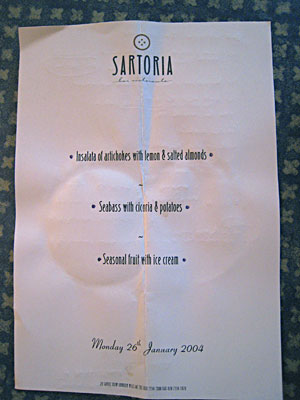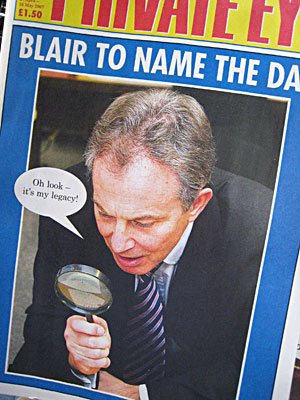I’m puzzled by the buzz about Twitter: why would anyone want to know the tiny details of what I am doing at any given moment? But lots of people I know are intrigued by it and I can’t quite see why.
David Weinberger has just posted the best case I’ve seen so far for paying attention to it.
I’ve been twittering. I’m not entirely sure why, and I feel too old for it, but I’m finding it fascinating. And more than that.
Twitter and other such sites (e.g., Jaiku) are “microblogs” where you can post very short messages (e.g., 140 characters) and see the scroll of messages posted by your buddies. You can Twitter via the Web site, IM, or SMS on your cell phone.
In general, people seem to post what they’re doing at the moment, plus occasional quotes and ideas of interest. So, by definition it should be trivial. But, Twitter is about the intimacy of details. Without it, I’d hear from people maybe once a year, when I run into them at a conference or they send a holiday newsletter. (Actually, I don’t get any of those any more. Two explanations: 1. Blogging has obviated them. 2. Nobody likes me. Third explanation: Both of the above.) We then engage in the odd ritual of narrative construction called “catching up.” We give the headlines in each of the big areas in our lives. The kids are fine, the job sucks, we botoxed the cat, etc. But with Twitter, you see the day-to-day life of your friends.
A lot of it of course I don’t care about. But it turns out that I do like hearing that Paolo Valdemarin, an Italian friend I see every couple of years, is sitting on his porch, drinking wine and watching the sunset. I do like hearing that Jessamyn West, who I unfortunately run into very rarely, is working on a presentation to librarians, which she then shares with her Twitter pals. I do care that BradSucks, a Canadian musician I’ve only met once, is rehearsing for a live show. This is, to mangle Linda Stone’s phrase, continuous partial friendship, and it’s a welcome addition to the infrequent, intermittent friendships we’re able to manage in the real world.
It helps that the volume of flow is so impossibly high that there’s zero expectation that anyone is keeping up. “Hey, dude, why didn’t you know that? I like twittered it two days ago?” is just not a reasonable complaint.
I don’t know if Twitter or one of its new-and-improved competitors will survive, or what it will become. It’s hot at the moment, which usually means that it’s not going to be hot soon. But it’s a powerful platform for something, and even in its current state, it addresses our desire to fill every interstice with social connections.



